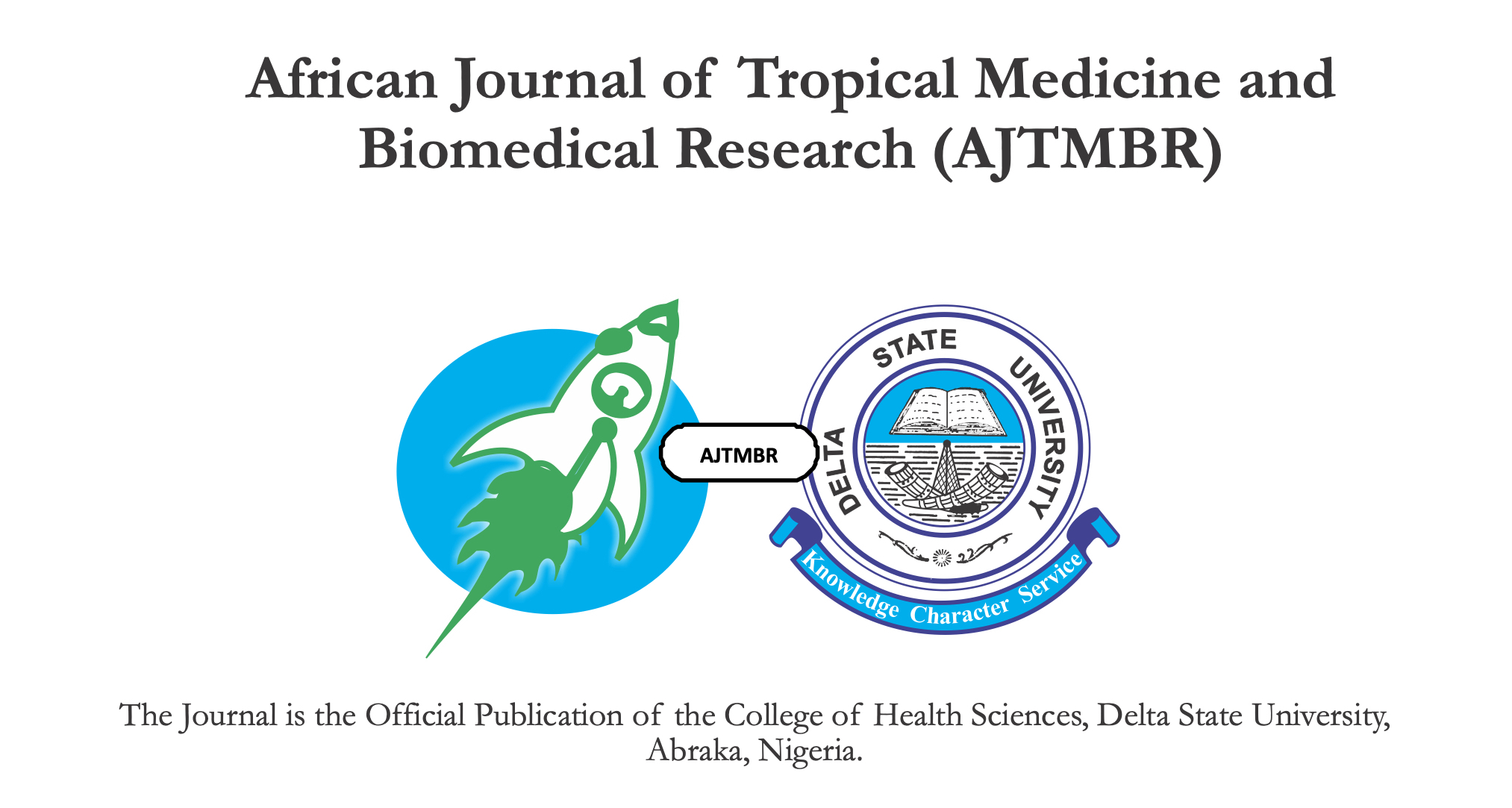The Public Health Impact of the Nigerian Abortion Policy and the Case for the Reform of the Nation's Abortion Laws
Abstract
.
References
Omo-Aghoja LO, Omo-Aghoja VW, Feyi-Waboso p, Onowhakpor A. The story of abortion: issues, controversies and a case for the review of the Nigeria national abortion laws. East African Journal of Public Health, 2010; Vol. 7 (4): 333-341.
CriminalCodeAct.Cap77Lawsofthe Federation 1990: 3213-3214.
Penal Code (Northern States) Federal Provisions Act. The laws of the Federation of Nigeria 1990.
OkonofuaFE.Thecontributionofanti- abortion laws to maternal mortality in developing countries. Expert Review of Obstetrics and Gynecology, 2008. Vol. 3, No. 2, 147-149. DOI: 10.1586/17474108.3.2.149.
Berer M. National laws and unsafe abortion: the parameters of change. Reprod Health Matters 2004; 12: 1-8.
David HP. Abortion in Europe, 1920- 1991: a public health perspective. Stud Fam Plann 1992; 23: 1-22.
Boonstra H, Gold R, Richard C, Finer P. Abortion in Women's lives. http://www.guttmacher.org/pubs/200 6/05/04/AiWL.pdf.
Jewkes R, Rees H, Dickson K, Brown H, Levin J. The impact of age on the epidemiology of incomplete abortions in South Africa after legislative change. BJOG 2005; 112: 355-359.
Alan Guttmacher Institute (AGI). Sharing Responsibilities: Women, Society and Abortion Worldwide. New York: AGI; 1991.
Grimmes DA, Benson J, Singh S, Romero M, Ganatra B, Okonofua FE et al. Unsafe abortion: The preventable pandemic. The Lancet Special Issue on Women's Reproductive Health series, edited by Glasier, and Gulmezolu, Oct 2006; 65-76.
United Nations. Abortion policies: a global review. Vol III: Oman to Zimbabwe. New York: United Nations, Population Division, 2002.
Hirve SS. Abortion law, policy and services in India: a critical review. Reprod Health Matters 2004; 12: 114- 121.
Ganatra B. unsafe abortion in South and South-East Asia: a review of the evidence. In: Warriner IK, Shah IH (eds). Preventing unsafe abortion and its consequences: priorities for research and action. New York: Guttmacher Institute, 2006: 151-186.

Downloads
Published
Issue
Section
License

This work is licensed under a Creative Commons Attribution-NoDerivatives 4.0 International License.
Key Terms:
- Attribution: You must give appropriate credit to the original creator.
- NonCommercial: You may not use the material for commercial purposes.
- ShareAlike: If you remix, transform, or build upon the material, you must distribute your contributions under the same license as the original.
- No additional restrictions: You may not apply legal terms or technological measures that legally restrict others from doing anything the license permits.
For full details, please review the Complete License Terms.



